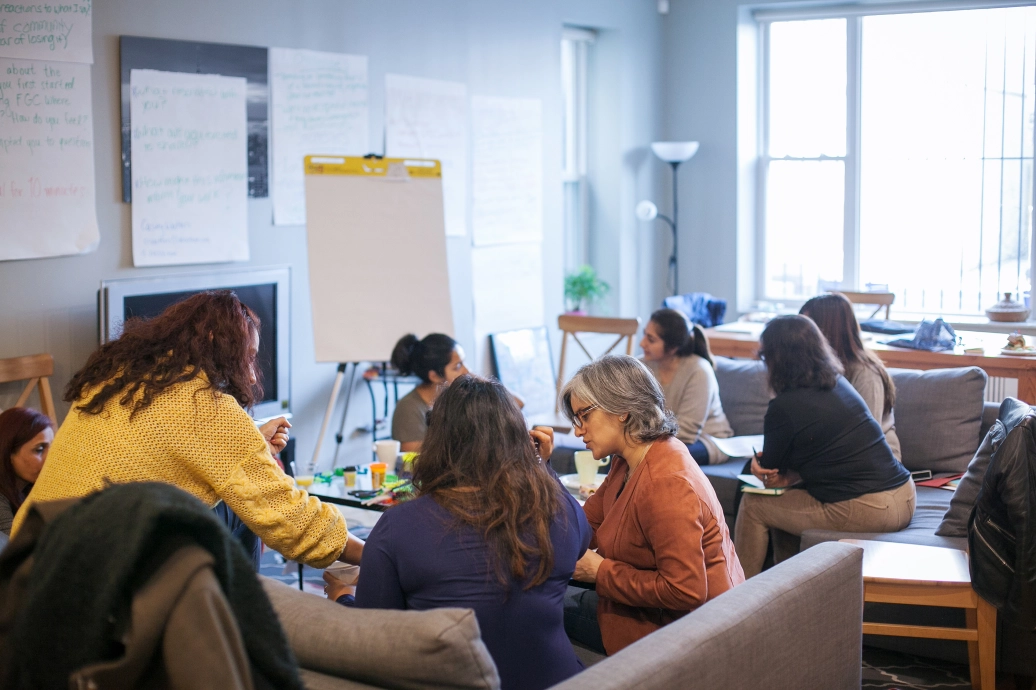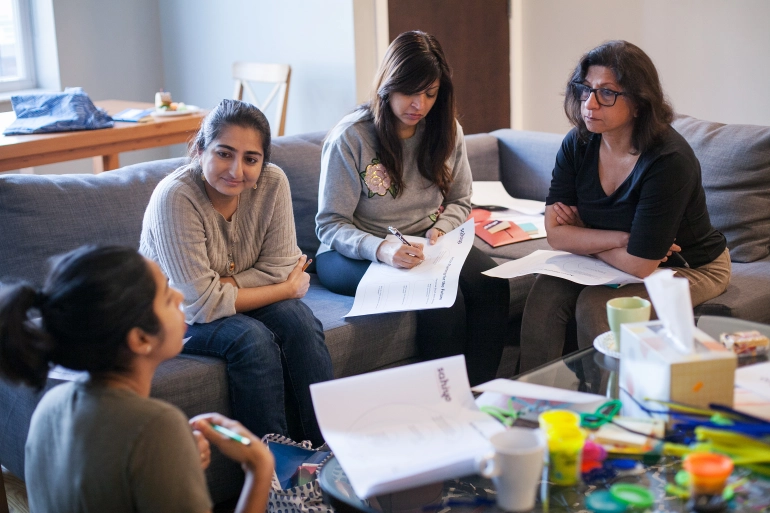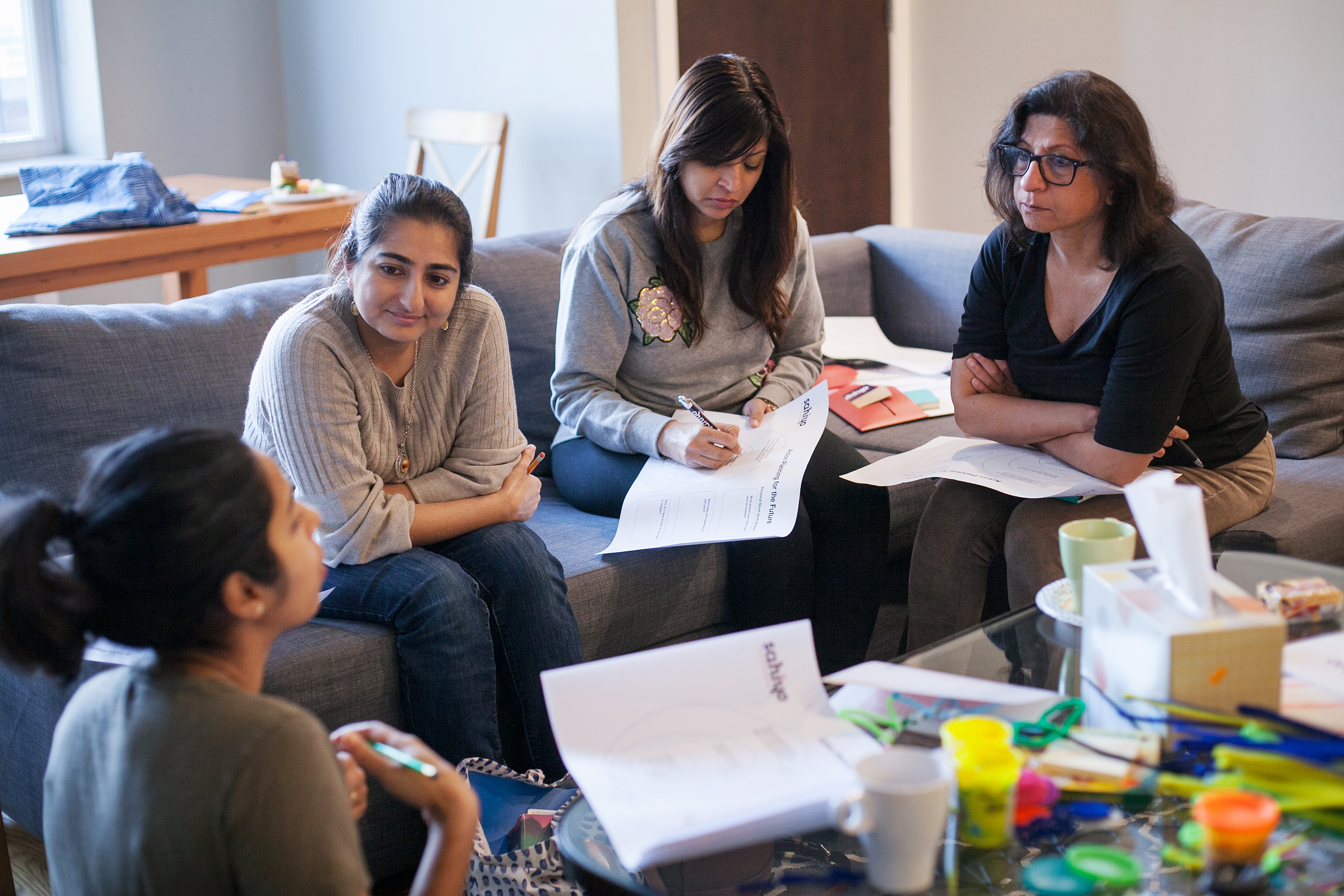By Anonymous
Country: United States
Age: 34
To be honest, it was hard for me to make the decision to go to the Sahiyo Activist Retreat earlier this year. I grew up in the Dawoodi Bohra community in India, and having had my share of challenges with the community that involved threats to my family, I felt like I didn’t have the courage within me to start another battle that involved me fighting against FGM/khatna. But I knew deep down inside that none of my battles with my community had ever ended, and if I stopped speaking up now, another girl somewhere else would have to suffer like me.
I have been away from India for the last 7 years, and it took a retreat like this one for me to realise that I had not interacted with a single person from within the Bohra community here in the US since I moved here, and how much I had missed that. My only experiences of being with other Bohra women was in India, either at a religious prayer service or ceremony or at a Bohra women’s ‘meneej’ (kitty party) group that I was forced into by my mother and friends. I had never had an opportunity to be in a room full of Bohra women, where we could have an open, honest and authentic discussion about the challenges women faced in the community, and identify ways we could empower each other, stand up against the injustices done to us, and fight for change within the community. The Sahiyo Activist Retreat allowed for that and much more.

Since most of my experiences were in India, I was keen on learning about how the community functioned here. And through my very first interactions and impressions, I knew that it was no different here and that the community was as strict, perhaps even more here than in India. It was also clear from the start that every single woman present in the room including myself, had shared hopes from the retreat; to find a space where we could openly share our FGM /khatna stories, to build a strong support group, to gain knowledge and tools to confidently speak up against FGM/khatna, and most importantly, to find a space to heal.
The agenda for the two-day workshop was packed but allowed enough time for us to bond with each other, and my healing began almost immediately. The workshop had a bottom-up approach, wherein each participant got to share their stories and all the work that they had already been doing to end FGM/ khatna in the community. The sessions that followed helped us further our knowledge and understanding of FGM/Khatna by providing us with in-depth studies and evaluations, effective communication tools, and defining ways to support activists inside and outside the community worldwide.
The discussion that stood out for me the most was the one that focused on community and survivor-led movements, and the importance of having Bohra men and women from within the community fighting to end FGM/khatna. I have always believed that for any change to truly take place, all the effort and groundwork needs to happen by individuals who represent the community, who understand the systems, history, culture, and nuances of the community, and that means each one of us Bohra men and women. If we want to end FGM/Khatna, each one of us needs to take leadership and ownership of this problem. Men need to become allies for women, and women need to become allies for other women in the community.

Through breakout sessions and one-on-one conversations, we came up with action plans and ways in which each one of us could contribute to this movement. And of course there were informal post-dinner ramblings, debates and heated discussions on FGM/khatna, and many other women’s issues faced by us in the community.
Three months later, I sit with this fire within me that began during the retreat. I find myself more at ease when talking about FGM/khatna with friends and work colleagues. I still haven’t been able to openly talk about it, for I fear the backlash my parents will face in the community in India, but I’m confident that that will also change someday. I am now helping coordinate logistics for a storytelling workshop that will educate and empower 8 women participants to become powerful and effective storytellers. I am also excited to organize a ‘thaal pe charcha’ event during the summer with the hope to bring both, women and men, to have an informal dialogue about FGM/khatna, and learn from the findings provided by Sahiyo.
Lastly, my inner healing that began during the retreat continues to change me in positive ways. It is allowing me to let go of my past, and channel my energy to be a better activist, to not dwell in self-pity, but to become a strong ally and force of change within the community.

